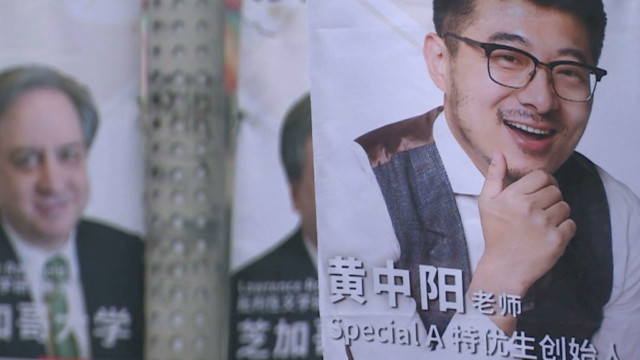In 2015, more than 520,000 Chinese students headed overseas for their education. In the next year, the number jumped by more than 20,000 students – a record high.
That trend has fueled the growth of agencies that help students with their applications, but it often comes with a hefty price tag.
As CGTN’s Ryan Chua reports, China’s study abroad agencies have become lucrative businesses.
It’s crunch time for these students, who are setting their sights on graduate schools abroad. And, application deadlines are just around the corner.
Zhang Zekun is applying to 10 universities in the U.S. for his master’s studies. He’s been preparing for more than a year now.
“I want to go abroad to see a different culture in one of the most developed countries in the world,” said Zhang.
Besides reviewing for tests, many Chinese applicants turn to companies that offer them guidance, from picking schools and programs that match their profiles, to improving their application essays.
And it doesn’t come cheap.
At New Oriental Education and Technology Group, China’s largest education agency, the cost of overseas study consulting services, can average at about 30,000 yuan – roughly $4,500.
“It’s quite promising because we’ve seen an increasing number of Chinese students who want to go abroad,” said Cheng Zhuang, International Cooperation Director of New Oriental Education and Technology Group. “I think many families and many parents can afford their children to go to study abroad to enrich their life learning and also to expand their horizon and employment possibilities.”
New Oriental’s overseas study consultancy earned more than 1 billion yuan – or $150 million last year — a record high for the company.
But even smaller agencies are cashing in on the growing number of Chinese who want to study abroad. In 2016, education consulting firm Better Education generated more than $3 million in revenue.
“When we established our company in 2010 we had only 50 students in the first year,” said Robert Pang, Service Director for Better Education. “But now we are serving about 1,000 students. The number has increased about 20 times.”
China’s education ministry said more than half a million Chinese went abroad to study in 2016, higher than in previous years.
With hundreds of thousands of students aiming for an overseas education every year, study abroad agencies have become a fast-growing and lucrative sector here in China.
Beginning early this year, the government no longer required them to get licenses from provincial education bureaus, making it easier for new players to enter the market.
But the non-profit Beijing Overseas Study Service Association (BOSSA) said it’s now harder to ensure agencies provide quality service and do not commit fraud.
BOSSA has set up a system to help institutions abroad, verify the academic records of the student applicants.
It also has a training program for consultants and a hotline for customer complaints.
“Those who commit fraud and violate our principles and standards will be sanctioned, and we’ll publicize what they did,” said Sang Peng, President of BOSSA. “Our goal is deterrence. If they lose their credibility in this market, they lose their credibility elsewhere.”
But BOSSA holds sway only over its 200-plus members, a tiny fraction of an estimated 4,000 agencies operating across China — fueled by an ever-growing demand.
 CGTN America
CGTN America
